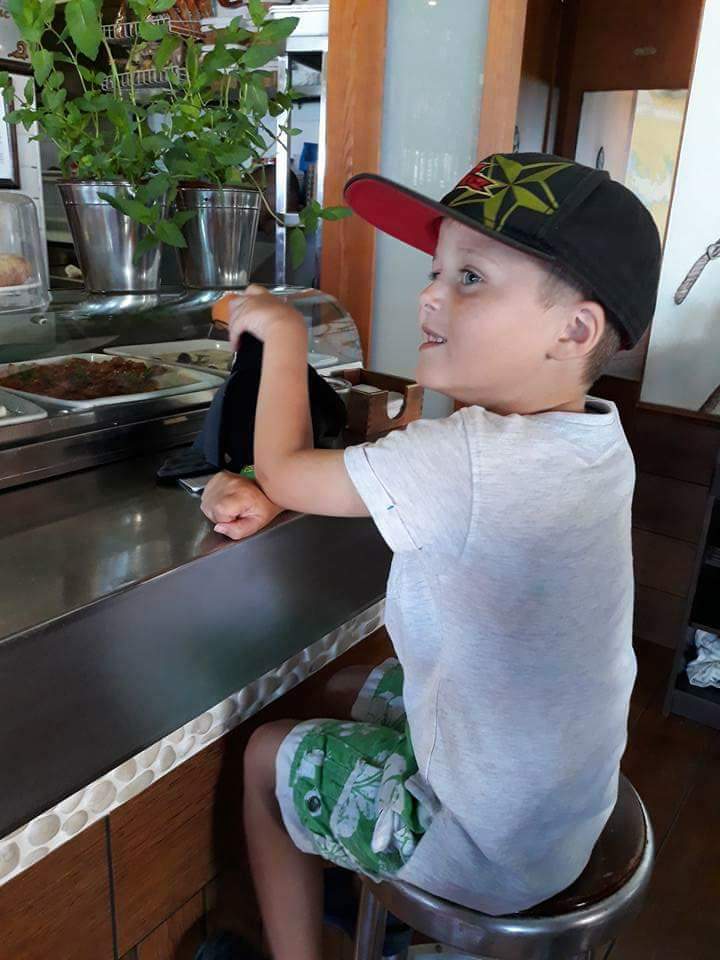


The middle of the Tiny Travellers, D, loves holidays and travel (as do the other 2). D also has Autism. Sometimes his Autism can bring him extra challenges and barriers.
I’m often asked how D copes with all our holidays and travels; does it not get too stressful for him? Can he handle all the changes in routine?
Here’s some of the reasons why travel is a positive experience for D, in relation to his Autism.
“A child with autism may seem to be in their own world”

I’ve always said I’d love to see the world through D’s eyes. He might often be in his own world but that world is full of wonder, innocence and magic! When we travel, we’re helping D to expand his wonderful view of the world and in return he helps us see the magic where we might have never noticed it.
“A child with autism may not share enjoyment or interests”

When we travel, one of the first things D does is check out the tourist information stands and studies the leaflets and adverts. He knows that if he wants to do any of these things, or visit any of these places, he’ll have to share them with us so that we know. We often spend the first evening surrounded by leaflets deciding which places we’ll visit and what activities we can do. This is a great way for D to get involved in planning and sharing his interests as a family.
“A child with autism may show no interest in other children or peers”

One of the reasons D struggles to play with others is because of his delay in speech and language development. If another child speaks to him and he doesn’t know how to respond, or their games involve verbal communication, he soon removes himself from the situation as it will be more of a challenge and no longer be fun for him. Travelling in a foreign country quickly removes this barrier for D. When a range of children, who all speak different languages, play together, language isn’t an issue for D anymore. These children often cant communicate verbally with each other due to language barriers so they play without the verbal communication which means D isn’t disadvantaged by his delay in speech and language development.
“A child with autism may have little or no spoken language”

Think about how frustrating it is when you’re in a foreign country, you can’t speak the language very well and you’re struggling to communicate your wants and needs. This is how a child with speech and language delays feels everyday!
When travelling abroad together, D is often better than the rest of us at communicating his wants and needs to the waiters in the restaurants, taxi drivers etc as he has his own set of skills and techniques that he uses to aid his communication at home. He’ll use Makaton signs to ask for an ice cream, point out the pictures of what he wants for his dinner in the menu or will make a monkey noises and gestures to let the taxi driver know we want taking to the zoo. This boosts his self esteem and encourages him to communicate more as people aren’t ‘expecting’ a verbal answer from him so no-one has to step in and explain his speech delays.
“A child with autism may insist on following routines and be easily upset by change”

This can be an advantage when travelling, especially in places like airports were there is a strict routine to go through.
The more we travel the more D understands what happens next. He no longer has a meltdown when we check the suitcases in or when his bag and ipad are going through the security scanner because he knows he’ll get them back. He now even takes his ipad out ready to put through the scanner separetly, takes his jacket off and helps me load up the trays correctly without being instructed.
D still struggles with small changes to everyday routines but because everything is different when we travel he’s less focused on the little things in his daily routine and is more open to new things.

Of course this is just a very short insight into how travel helps D to overcome some of the barriers caused by his autism or how particular autism traits can help to enhance his travel experiences.
I could go on all day about the positives that travel has on D (both in the UK and abroad) so if you have any questions feel free to ask and I’ll answer what I can based on our experiences



.png)






.jpg)




